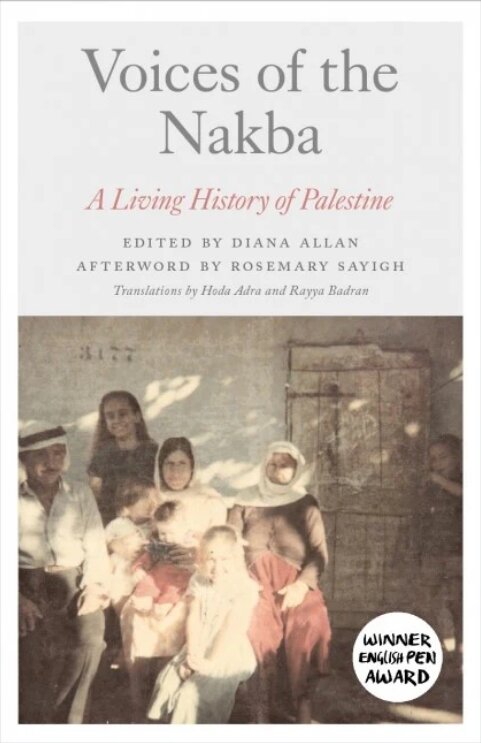A book review of the Nakba

TEHRAN - Published more than seventy years after the expulsion of over 700,000 Palestinians from their homeland, Voices of the Nakba: A Living History of Palestine, edited by anthropologist Diana Allan, offers a rare and powerful collective portrait of a people whose history has been systematically silenced.
This landmark oral history collection documents the personal stories of first-generation Palestinian refugees, primarily in Lebanon, and offers readers not just historical testimony, but a vivid sensory encounter with the lived reality of exile.
Drawing on two decades of work by the Nakba Archive—an initiative co-founded by Allan and Mahmoud Zeidan—the book features testimonies from refugees expelled during the 1948 Nakba (Arabic for “catastrophe”), an event that continues to shape Palestinian identity and struggle. Through the recorded memories of elders, the book revives a Palestine that existed before its erasure by war and colonization: a land of villages, vibrant communities, cultural diversity, and deep-rooted relationships with the land.
Organized into four parts—life in pre-1948 Palestine, resistance during the British Mandate, the violence of 1947–48, and exile—the book blends oral testimony with scholarly commentary.
This dual structure allows the reader to grasp both the personal texture of memory and the broader historical significance of the events recounted. Each chapter presents excerpts from interviews followed by critical reflections from academics in fields ranging from anthropology to history and literary studies.
The heart of the book lies in the voices of ordinary Palestinians—men and women, peasants and city dwellers, Muslims and Christians—who speak in intimate, unscripted tones about loss, survival, resistance, and longing.
One recalls how Zionist militias rounded up villagers and carried out massacres; another remembers the orchards, schools, and social bonds of village life violently ended.
The trauma is raw, but so too is the enduring sense of dignity and attachment to Palestine. The interviews were often conducted in modest refugee camp homes, making the contrast between past and present all the more jarring—and poignant.
What distinguishes this book from previous historical accounts is its focus on orality and embodied memory. The editors and translators work meticulously to preserve the rhythm and idiom of Palestinian Arabic, allowing these narratives to retain their emotional and linguistic authenticity. As Diana Allan notes in her introduction, these stories are more than recollections—they are forms of resistance against historical erasure.
The timing of the book’s release is significant. As global awareness of the Palestinian cause grows amid renewed crises in Gaza and the West Bank, Voices of the Nakba offers urgent testimony that refuses to relegate Palestinian suffering to the past. It asserts that the Nakba is not a closed chapter, but an ongoing condition—a structure of displacement, denial, and resistance that continues to this day.
For journalists, educators, and policymakers, this book serves as a critical corrective to mainstream histories that omit or distort the Palestinian experience. For Palestinians in exile, it is a tribute to their struggle, a record of endurance, and a repository of memory for future generations. And for all readers of conscience, it is a profoundly moving reminder that justice begins with listening.
Voices of the Nakba is more than a collection of refugee stories—it is a living history and a call to moral responsibility. On Nakba Day, when Palestinians and their allies commemorate the trauma of 1948, this book stands as a testament to the fact that those who will not forget will not be forgotten.
Leave a Comment